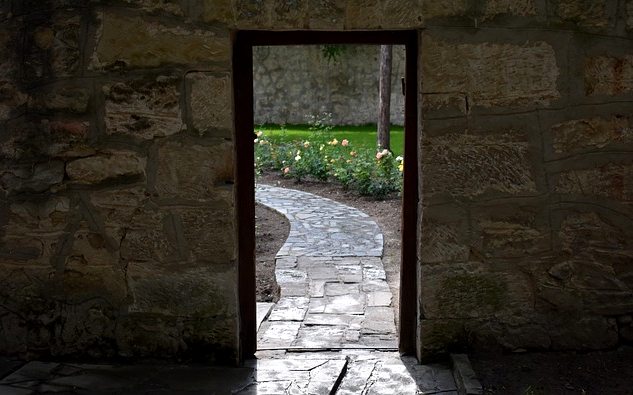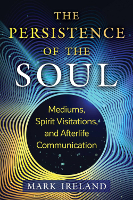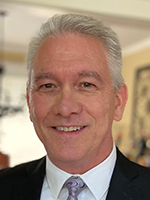
Image by Сергей Корчанов
Before his near-death experience in 2008, Dr. Eben Alexander—who taught and performed neurosurgery at the Harvard Medical School—concurred with most of his fellow scientists by assuming that the brain produces consciousness. But after a close brush with death following a week-long coma, as a rare form of bacterial meningitis attacked his brain, Dr. Alexander’s worldview changed.
According to prevailing theories on brain function, Dr. Alexander should have been incapable of consciousness during his coma. As Dr. Alexander notes in his book, Proof of Heaven, “During that time, my entire neocortex—the outer surface of the brain, the part that makes us human—was shut down. Inoperative. In essence, absent. When your brain is absent, you are absent too.”
Despite this dire scenario, Dr. Alexander actually experienced an expanded awareness, sensing an immensely loving connection with the Divine source and knowledge of the interconnected nature of the universe. His biological recovery could be described as miraculous, since doctors did not expect Dr. Alexander to survive. I wondered if there was a bigger purpose at work here—why it was that a person with this particular background and stature happened to come back from the brink of death to tell his story.
I’ve had the opportunity to speak with Dr. Alexander on a few different occasions and asked him about his experience. This prompted him to share his greatest revelation, previously expressed to colleagues in question form, “Do you know what this means?!”
Dr. Alexander then shared his perspective, mirroring my view, that consciousness is primary and that matter and form are creative expressions produced by consciousness—and that the spiritual realm is real. Dr. Alexander’s story reinforces my contention that personal experience is the greatest catalyst for change in a person. But what about those who have yet to have such a life-altering event?
Seeing Via Our Cultural Conditioning
Via cultural conditioning, people come to see things through a particular lens that produces their reality. And sometimes people identify so strongly with an ideology—be it religious fundamentalism, scientism, atheism, or some other “ism”—that the creed itself becomes the key descriptor for the person’s own self-image. Not only does this limit the scope of their exploration, it can create a false or incomplete sense of self.
It may not be easy, but if people can open their mind to new information and evidence, it can be a first step in helping them recognize their own truth—to “Know Thyself,” as suggested in the ancient Greek maxim. It is easy for an individual to say, “I believe that” or “I am this.” It is more difficult to reflect deeply, assimilating an inner truth, as opposed to espousing a commonly accepted ideology.
I’m not recommending that people abandon their chosen religion or spiritual philosophy. Rather, I am suggesting that a deep self-exploration—conducted earnestly and honestly—will expand a person’s sense of awareness about themselves, their willingness to learn new things, and their ability to change. This process can enrich someone’s religious or spiritual life as well as their communal experience, making them more empathetic.
Exploring the Middle Ground and the Afterlife
I want people to open their minds to a large body of proof available to the explorer. My hope is to help people work their way through the seemingly irreconcilable chasm between the culture of scientism—with its atheistic, secular-humanist ideology and denial of spirit—and traditional religious explanations that seem largely outmoded and implausible to many people. There is a middle ground.
I recognize that some will be closed off because the information conflicts with their worldview—whether or not they realize this as the source of their rejection. I earnestly encourage such persons to think deeply on these matters and consider whether they approached the evidence with an open mind or dismissed it without true consideration.
Among phenomena affirming the afterlife, I focus on mediumship since it yields some of the most compelling evidence and because it can provide tremendous healing to bereaved persons. It is also the area with which I’m most familiar, as I was raised by a father with these abilities and have since met some of the top psychic-mediums in the world today.
In terms of the healing effects of mediumship, I have seen people who were completely distraught after losing a loved one, but they bounced back after experiencing an evidential reading. Hope was restored for these individuals because they were given sufficient evidence that they had actually connected with the living essence and personality of their deceased loved one. Without hope and sense of purpose, people can lose their will to live and therefore cannot contribute their gifts to the world. I see life as having purpose and meaning.
A New Perspective
I’ve also come into contact with parents who were devout in their religious convictions until they lost a child, then questioned everything they had previously professed to believe. One such couple, now good friends of mine, pursued a different course after their son passed, and they began to view things from an entirely new perspective, broader than before. After the death of their son, the church where they’d been quite involved for many years demonstrated little concern for their wellbeing and offered no support.
The couple also found that their most outwardly religious friends were actually the least willing to discuss their deceased son and were the “most depressing people” to be around. Conversely, the couple received great support from unexpected quarters—a minister from another church and a few mediums who reached out in an unsolicited way, seeking no payment for their services. These mediums furnished highly evidential information, including some facts about their son’s cause of death—unknown to anyone at the time but later validated.
Prior to their son’s passing, the couple didn’t even know what a medium was, but they subsequently came to find that they didn’t have to rely on blind faith alone. A session with a good medium can serve as a healing balm.
Some people, like my friends, never questioned church doctrine or traditionally accepted views before suffering a loss. But after the trauma associated with the death of their child, they explored matters more deeply—eventually expressing puzzlement over the reasons why churches often discount modern-day occurrences of phenomena that parallel scriptural accounts. Their loss served as a catalyst for a newfound curiosity about things that had never before drawn their interest, and this open-minded perspective resulted in a deeper search and more reflective personal introspective process.
In the end, many of these people didn’t lose their faith despite the ultimate challenge to faith: why bad things happen to good people. Instead, they adapted it into something they could truly believe and that resonated with them. They also felt a new sense of freedom about how to frame their beliefs while maintaining their membership in a church—or not.
The Link Between Religion, Spirituality, and Psychic-Medium Phenomena
Scriptures mention many “miracles” that are most reasonably explained by precognition, psychokinesis, clairvoyance, clairaudience, and mediumship. Most churches are hesitant to admit this, although some members of the clergy will attest to these things when off duty. To ignore this seemingly obvious connection is to pander to materialists who contend that such stories are nothing but elaborate fables that tricked simple-minded people centuries ago, which now serve to discredit religion.
Spiritual leaders would be wise to learn more about parapsychology, opening up to the possibility that at least some of the stories are congruent with said phenomena. Their added knowledge in this area would strengthen their arguments about the legitimacy of some miracle accounts in scripture, fostering more trust and belief among parishioners.
I also wanted to identify the “neutral ground” or common spiritual denominator to which most people can relate. I would suggest that this “place” is approximately two steps back of any particular religion or dogma—a space where all can meet and relate in a peaceful and mutually respectful way.
I am motivated to draw light to the interrelatedness of humankind and the critical need for us to strive for a greater unity among all peoples. My father helped me understand and embrace these concepts, and they remain a critical aspect of my perspective today. I would suggest that these principles are actually self-evident, even though humanity has shown a propensity to live in the opposite way.
Exploring Our Points of Commonality
Throughout history, extremists have insisted that their way is the only acceptable path, displaying little or no tolerance for alternate perpectives. This type of thinking has led some cultures and religions to demonize others whose views differed from their own—people whom they never sought to understand in the first place. Yet according to scripture, Jesus told his followers: “Love your enemies and pray for those who persecute you” (Matthew 5:44). Based on how most people treat one another in the world today, this directive may seem a lofty and unattainable ideal.
Regarding the ongoing and debilitating dilemma manifesting as “us vs. them,” I would suggest that it’s critical to explore our points of commonality, as revealed within the universal principles of truth running through all faiths and ideologies. While the differences in belief sets have been extensively explored—sometimes with deadly consequences—the areas of accord have rarely been considered.
Whether your concept of the Divine is a personal God, an ineffable force, the universe itself, or something else entirely, is ultimately up to you. The key is to recognize that a portion of this Divine source is within you—accessible to you—and that another realm of being exists beyond this world of physical manifestation.
It is important because the process of connection via prayer, meditation, contemplation, and other practices lends guidance and helps to reveal our life path. It can also give us strength to stay on course during difficult times. Finally, it can give you comfort and confidence to truly know that your vital essence will continue on in an expanded way after the physical body you now occupy is no more.
Copyright 2013, 2023. All Rights Reserved.
Originally published as 'Messages from the Afterlife'.
Adapted (2023 edition) with permission
of the publisher, Inner Traditions International.
Article Source:
BOOK: The Persistence of the Soul
The Persistence of the Soul: Mediums, Spirit Visitations, and Afterlife Communication
by Mark Ireland.
 After the unexpected passing of his youngest son, Mark Ireland began a search for messages from the afterlife and discovered remarkable proof of life after death.
After the unexpected passing of his youngest son, Mark Ireland began a search for messages from the afterlife and discovered remarkable proof of life after death.
Interweaving profound personal experience and compelling scientific evidence, Mark presents a deep dive into psychic-medium phenomena, spirit visitations, afterlife communication, reincarnation, synchronicity, and near-death experiences, pointing to the survival of consciousness after bodily death. He details how he confronted his resistance to engaging in the spiritual and parapsychological practices of his deceased father, prominent 20th-century psychic Dr. Richard Ireland.
For more info and/or to order this book, click here. Also available as a Kindle edition.
About the Author
 Mark Ireland is an author, researcher, and co-founder of Helping Parents Heal, an organization providing support to bereaved parents globally. He has actively participated in mediumship research studies conducted by esteemed institutions, including the University of Arizona and the University of Virginia. As a leading figure in the field, he operates a Medium Certification program. Mark is also the author of "Soul Shift".
Mark Ireland is an author, researcher, and co-founder of Helping Parents Heal, an organization providing support to bereaved parents globally. He has actively participated in mediumship research studies conducted by esteemed institutions, including the University of Arizona and the University of Virginia. As a leading figure in the field, he operates a Medium Certification program. Mark is also the author of "Soul Shift".
Visit his website: MarkIrelandAuthor.com/



























